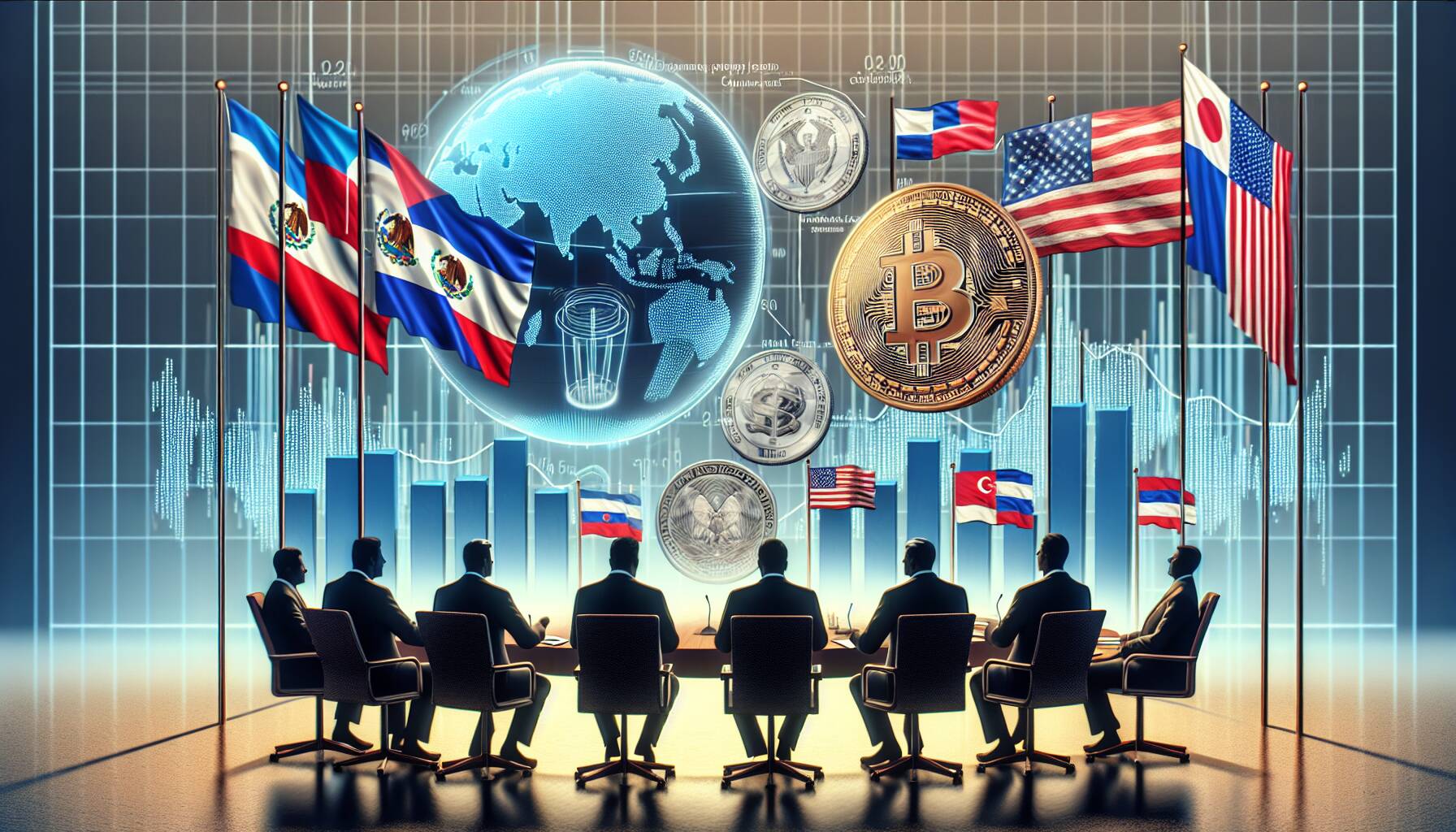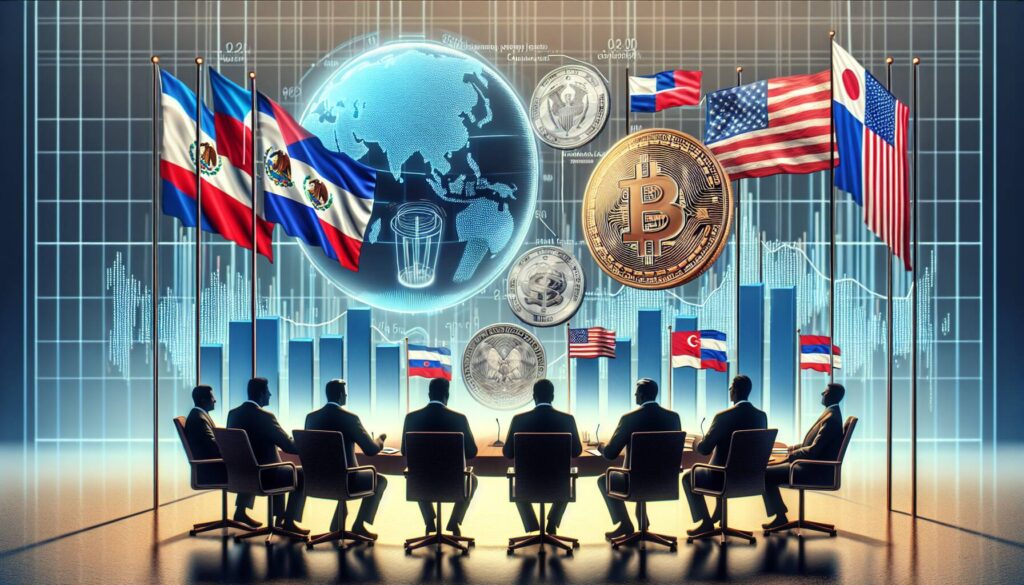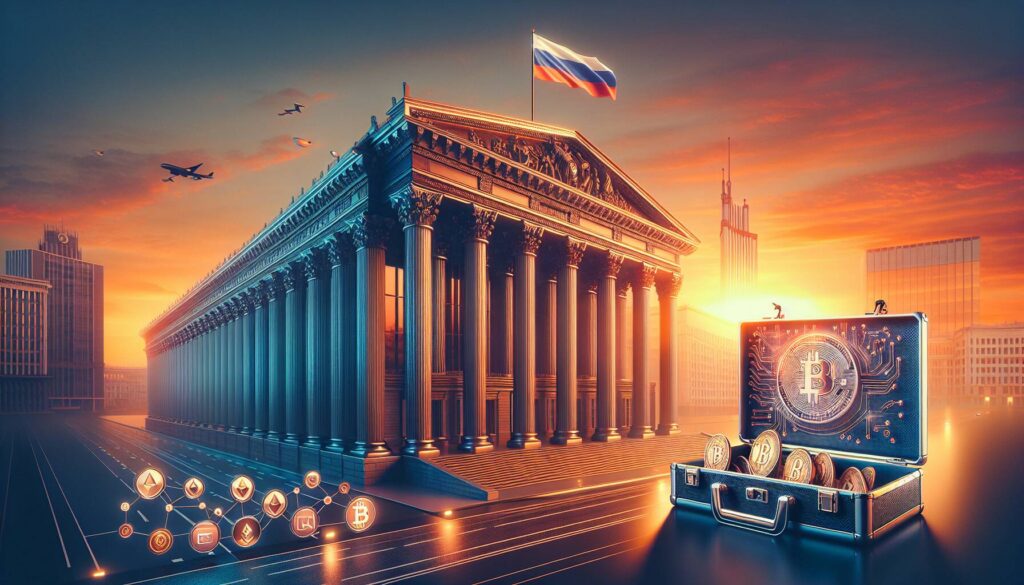In a significant development regarding El Salvador’s foray into Bitcoin, recent reports indicate that the country has not made any new Bitcoin purchases since February. This revelation comes from finance officials who disclosed this information to the International Monetary Fund (IMF), contrasting with statements from President Nayib Bukele’s administration, which has promoted the adoption of cryptocurrency as a cornerstone of its economic strategy.
El Salvador’s decision to halt additional Bitcoin buys is closely linked to a broader economic context. The move appears to be a strategic effort aimed at securing a crucial $1.4 billion loan from the IMF, highlighting the delicate balance the country is trying to maintain between embracing digital currencies and adhering to the financial oversight of international institutions. This loan is intended to bolster El Salvador’s economy amid ongoing challenges and positions the nation’s relationship with cryptocurrency under scrutiny.
“El Salvador’s hiatus from Bitcoin purchases raises questions about the sustainability of its crypto initiatives and the government’s economic management,” experts note, reminding stakeholders of the volatility associated with cryptocurrency markets.
Furthermore, despite the cessation of purchases, El Salvador has previously seen significant financial gains during Bitcoin’s price surges, which has led to ongoing discussions about the practical implications of cryptocurrency investments for developing economies. As the nation navigates this complex landscape, its experience offers valuable insights for other countries, particularly in the Asian fintech sector, examining similar paths.

El Salvador’s Bitcoin Purchases and IMF Deal
Key points related to El Salvador’s Bitcoin activities and its implications:
- Suspension of Bitcoin Purchases:
El Salvador has not purchased Bitcoin since February, indicating a shift in financial strategy.
- Contradiction with Bukele Administration:
This suspension contradicts the statements made by President Bukele, highlighting potential internal conflicts regarding Bitcoin policy.
- IMF Loan Agreement:
El Salvador’s decision to halt Bitcoin purchases is linked to securing a $1.4 billion loan from the IMF, showcasing the influence of international financial institutions on national policies.
- Impact on Financial Stability:
The inability to purchase Bitcoin may aim to stabilize the country’s financial situation in the face of global market fluctuations.
- Bitcoin Price Fluctuations:
Despite not purchasing Bitcoin, El Salvador has experienced gains from Bitcoin price surges, indicating potential for profit without ongoing investments.
- Learning Opportunity for Fintech Startups:
Asian fintech startups can derive lessons from El Salvador’s Bitcoin trial, reflecting on the risks and benefits of cryptocurrency integration.
These developments may affect readers’ perspectives on national cryptocurrency policies and their implications for financial security.
El Salvador’s Bitcoin Acquisition Stalemate: Implications and Industry Reactions
The recent announcement from El Salvador’s finance chiefs, revealing that the country hasn’t purchased Bitcoin since February, raises significant questions in the realm of cryptocurrency and economic policy. This development starkly contrasts with the Bukele administration’s previous bullish stance on cryptocurrencies, particularly Bitcoin, as a means to bolster the nation’s economy. The decision not to acquire more Bitcoin could be seen as a necessary compromise to secure a $1.4 billion loan from the IMF, highlighting both the precarious balance of financial strategy and the uncertainties surrounding crypto assets.
While some may view El Salvador’s pause on Bitcoin purchases as a prudent measure for regulatory compliance and financial stability, it also unveils underlying vulnerabilities. Compared to other nations that continue to explore or expand their crypto holdings, such as emerging fintech hubs in Asia, El Salvador’s approach may signal caution that could inhibit investor confidence. Without a consistent Bitcoin buying strategy, the country risks losing its competitive edge in the rapidly evolving cryptocurrency landscape. Furthermore, this situation may create obstacles for local businesses that have aligned their operations with the cryptocurrency’s volatility and potential.
On the flip side, proponents of regulatory measures may find solace in this decision. It could foster a more disciplined approach to integrating cryptocurrencies within formal economies, setting a pace that aligns better with international financial standards. The pause on buying Bitcoin could benefit traditional financial institutions and stability-focused investors seeking assurance in a region often characterized by economic turbulence.
However, the contrasting narrative around El Salvador’s Bitcoin journey serves as a cautionary tale for other nations contemplating similar digital adoption strategies. The lack of purchases might deter speculative investors who expected the country to double down on its innovative stance. Additionally, as the IMF’s influence grows, this might create a ripple effect among countries considering a decentralized currency framework, leading to potential aversion rather than adoption.
In summary, while El Salvador navigates its complex relationship with Bitcoin amid a crucial loan agreement, this situation presents both opportunities and challenges that could ripple through the broader fintech environment. Other countries, especially those within emerging markets, need to watch carefully how this unfolds, as it may either inspire a more cautious approach to cryptocurrency or ignite a push for more assertive policies depending on the outcomes of this pivotal moment in El Salvador’s economic landscape.















